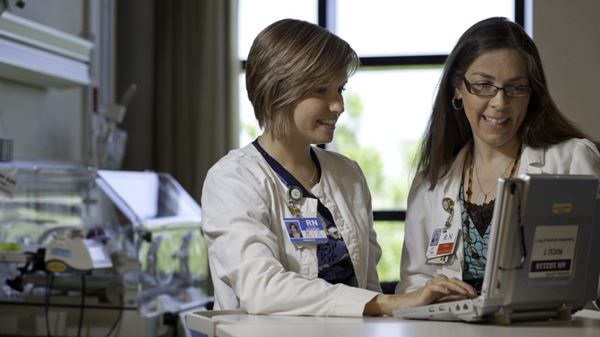As an athletic trainer for the Orlando Health sports medicine team, I feel very fortunate to have one of the most exciting jobs in healthcare. It’s a fast-paced world because we work with teams and individual athletes, mostly youth players, who are focused on performance. In my role, I’m able to impact the performance of the players I work with in a couple of ways. First, I provide training and education that helps them avoid injuries that could keep them sidelined. And second, when someone is injured, my job is to assess the severity of the injury and determine what kind of medical care the athlete needs, including whether they need care as quickly as possible or if they can wait to see a specialist the next morning.
A lot of my time is dedicated to working with the Orlando City Youth Soccer leagues as well as the Sunshine State Athletic Conference for high school sports and the Orlando Ballet. Then in the summer, when those activities are out of season, I work with different events at the National Training Center in Clermont.

When I’m at an athletic event, including the Orlando Ballet performances, and someone gets injured, I’m responsible for assessing the type and severity of the injury as quickly as possible. Sometimes, I’m dealing with a minor situation where after the initial pain fades away, it’s safe for the athlete to continue performing. If it’s more serious, I have to determine whether the athlete needs immediate attention or if it can wait until they can get to a specialist.
Immediate attention is needed for injuries such as a broken bone or a tear in a muscle, ligament or tendon. If the athlete has a mild sprain or severe bruise, it might be able to wait. For more serious injuries, I’ll call for EMS and then get in touch with the doctor to communicate any information I have that could help them with a treatment plan.
I am also on hand to determine when an athlete has suffered a concussion. As we all understand these days, even a mild concussion is a serious medical issue that we need to address. Concussions are tricky because the symptoms can be inconsistent from one person to the next and the symptoms can come and go.
And, of course, this is Florida, so we have to keep an eye out for heat exhaustion and dehydration, especially in the summer and early fall. Thankfully, leagues are much more aware of the dangers of pushing athletes too hard in the heat and humidity of Central Florida, and the coaches are much better trained about giving athletes frequent water breaks. Still, these issues occasionally crop up and it’s my job to treat the athlete when they do.
So, my typical day changes a lot depending on the time of year, and I enjoy that variety. In the fall, for example, you’ll usually find me at a high school football game on Friday nights. In the spring, I’m usually covering Orlando City Youth Soccer practices on weekday afternoons and I’m at games on the weekends. Then, with the Orlando Ballet, I attend their performances during ballet season, as well as doing a lot of work with their summer intensive program. I also spend a lot of time during the summer certifying youth coaches in CPR and general safety education.
Being an athletic trainer is a job that definitely keeps me on my toes, but that’s what makes it so interesting and fun!
Are you interested in a career at Orlando Health?
Serving 1.8 million Central Florida residents, Orlando Health is one of Central Florida’s largest employers. This is where you can find a career with a family of caregivers – each focused on helping our patients. No matter your role, you’ll play a part in providing patient-focused care in a supportive, encouraging environment.











